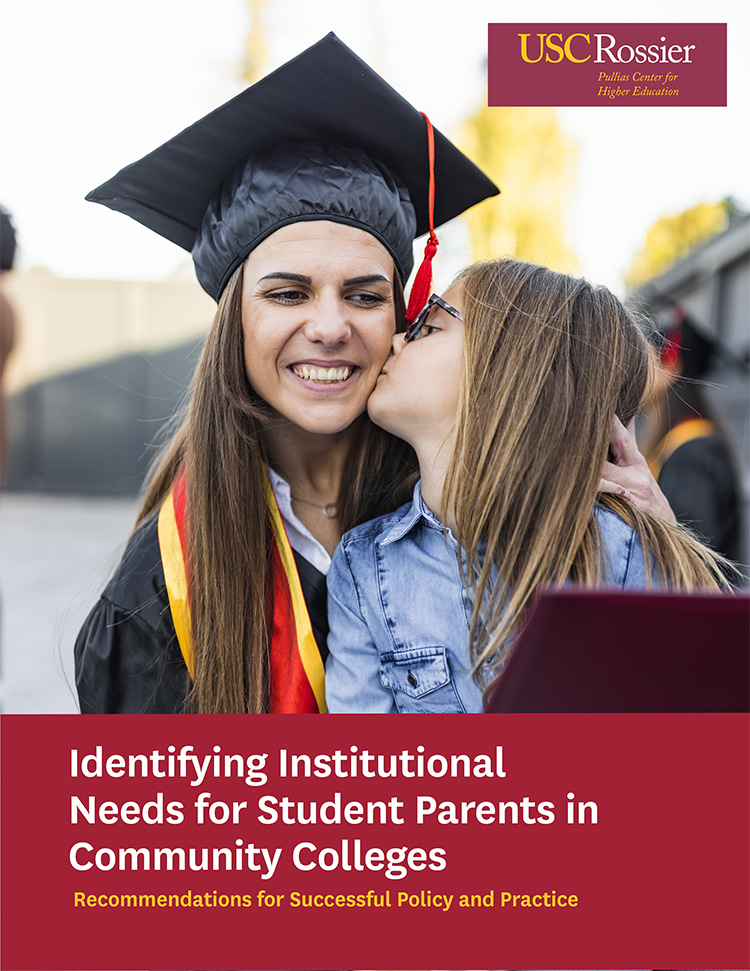Dr. Adrian H. Huerta leads the nationwide qualitative study that focuses on improving support systems for student parents.
A new report that features the myriad ways that community colleges around the country support their student parent populations — as well as what can be improved — has just been released by the USC’s Pullias Center for Higher Education, part of the Rossier School of Education. Previous research has indicated that community college student parents experience many structural challenges that contribute to being less likely to earn a college degree, credential or certificate, but are more likely to thrive with targeted institutional support systems.
The report, “Identifying Institutional Needs for Student Parents in Community Colleges: Recommendation for Successful Policy and Practice,” was commissioned by the Leonetti/O’Connell Family Foundation (LOCFF), and is part of a broader effort to address a lack of systemic and uniform best practices for this oft-ignored group of students.
“Higher education is at a critical juncture to improve current practices to better support students with dependents,” said Dr. Adrian H. Huerta, the report’s Principal Investigator. “We hope this report inspires community college presidents and leaders to consider refining strategies for the benefit of this generation of student parents who continue to overcome and succeed despite multiple hurdles.”
Community colleges serve as the primary entry point for many historically excluded student populations, with more than 3.8 million students in higher education being student parents. Of these, 42% are enrolled in community colleges across the country. The report was developed based on content analysis and interviews with more than 100 student parents enrolled in 18 community colleges nationwide, as well as obtaining qualitative data from local college administrators/staff who work to support their student parent populations.
The report addresses the many challenges faced by both local community college administrators (lack of funding, staffing) and student parents (unstable supports that could include child care, roadmaps that clearly spell out how to get financial and other assistance), but also provide concrete recommendations for community colleges to improve their student parent assistance programs — which in can increase student success levels and lead to graduation and certificate completion.
The report’s authors include Dr. Huerta of the Pullias Center, who was recently named a National Academy of Education/Spencer Foundation Postdoctoral Fellow (2022-2024). Dr. Huerta’s research focuses on boys and young men of color, college access and (in)equity and gang-associated youth and adults. Recently, Dr. Huerta received a nearly $1 million grant from the U.S. Department of Education to create the LBCC Phoenix Scholars, in partnership with Long Beach City College, to create college pathways for gang-associated populations. Additional report authors include USC Rossier PhD students Maritza E. Salazar, Edgar F. Lopez and Gabriela Torres, and USC Rossier Educational Counseling students Lauren Badajos and Norma A. Lopez Matias.








